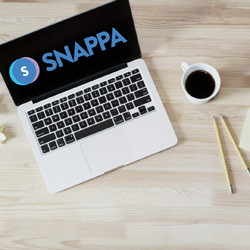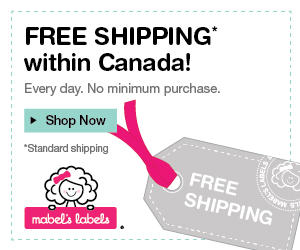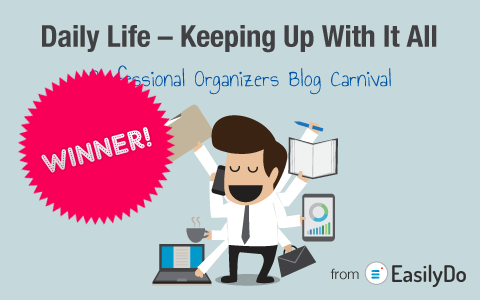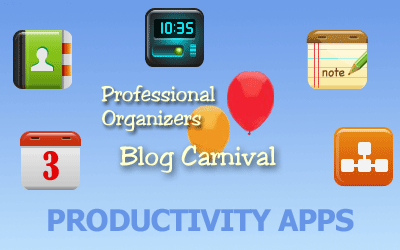How using Blockchain can improve your productivity consultancy business
This page may contain links to Amazon.com or other sites from which I may receive commission on purchases you make after clicking on such links. Read my full Disclosure Policy

It’s no secret that I love technology, but I read certain words and my eyes just glaze over, one example being blockchain. Not really understanding the concept, I was doubtful when someone from ICO Watch List approached me about writing a guest post, but I was intrigued by the ways this technology can be used by productivity consultants and other professionals to enhance their businesses as well as those of their clients. I hope you will be too!

Many businesses are already adopting Blockchain technology, with it rapidly being the ‘next big thing’ in the world of tech. As professional organizers, chances are that, before long, the majority of your clients will be using the blockchain. With this in mind, being armed with relevant knowledge in the field as a productivity consultant is going to be a major plus, and even better if your business is already using Blockchain.
Immutability
The blockchain is a digital ledger where data cannot be changed once added. By the use of advanced cryptography and consensus mechanisms, a blockchain is immune to malicious activities. As the blockchain runs on a network of computers, more than 50% of the network needs to agree to changes, making it virtually impossible for any one person to alter data.
You might be asking how this is relevant to your consultancy business … well, keeping your records on a blockchain can provide you with a clear indication of how your clients’ productivity levels improve after employing your strategies. Since Blockchain is public, your potential clients will easily see the benefits of using your services. Your work will speak for itself, and you will have more time to serve your clients better.
Confidentiality between you and your clients is a key part of your professional business. Ensuring their data, that you hold or have access to, is stored in a safe and secure manner, is much more manageable using Blockchain technology, mainly thanks to its immutability; as you may have gauged from this, the blockchain is vastly improving efficiencies across many different sectors, mainly thanks to the transparency it brings.
Faster transactions
Financial systems have traditionally been centralized, and third parties have always been the facilitators of money transfers. The commission paid to the third party makes the system costly and it can be characterized by a lot of delays. Blockchain solves these problems. Using the blockchain, or more specifically a token, to accept payment makes transactions with clients faster and cheaper. With Blockchain’s cryptocurrency romance, and more and more businesses—especially those directly involved in e-commerce—accepting tokens (such as Bitcoin) as a means of payment, at some point you should be looking to shift your organizational practice to the blockchain, or at least perhaps familiarizing yourself with its intricacies. Doing so will likely future-proof yourself, at least in the short term until the next wave of technology hits us!
It should be noted that even though the blockchain is a vastly superior technology to what we’ve been used to, a regulation system has yet to be implemented. The acceptance of the blockchain by more and more stakeholders is therefore not as fast as initially expected, but its consistent uptake and popularity is a testament to its efficiencies, with it increasingly being seen as current best practice. Ultimately, critics are claiming that the blockchain will enjoy wide acceptance and so being ready for it is vital, for you and for your clients.
Smart contracts
Smart contracts are a sequence of code embedded in a blockchain that self-execute when a set of conditions are met. For a productivity consultant, it could be something like, “If company X, by using organization strategies provided by the consultant saves amount Y, a Z percent of that money goes to the consultant.” This is an arbitrary example of how a smart contract could be used if a way exists of quantifying productivity. Such contracts make it easier for clients to try new strategies.
NAPO and Blockchain
The National Association of Productivity and Organizing Professionals (NAPO) is one of the leading organizations on productivity, with close to 4,000 members worldwide. It’s been evolving over time and is among the few institutions training professional productivity consultants. This is a perfect example of where Blockchain can be highly useful, especially for its certification program, as a means by which clients can verify the individuals who claim to be NAPO certified.
Is Blockchain for you?
The advantages of the blockchain can further be exploited by using its technology in the overall operation of the business, especially for large firms, and is an excellent way of further developing and analyzing client productivity and organizational performance.
Blockchain technology continues to prove that it is going to be a major player in many industries. Productivity consultancy businesses, though not among the early adopters of the technology, hold a very crucial position in the business ecosystem. Other than the advantages presented by the direct use of blockchain, productivity consultants, by the very nature of their business, stand to gain more by understanding its entire workings.
References
Transparent Transactions: How Blockchain Payments Can Make Life Easier For B2B Companies
Your Organizing Business – Business Practices Archive











Interesting concept…where can I learn to use blockchain?
Hi Lisa – I have replied, but it’s at the bottom of the comments, so not sure if you’ll be notified!
Best wishes,
Chris
I really have a lot to learn when it comes to blockchain. Thanks for sharing this perspective. I think it is clear that we will be hearing more and more about it!
Hi Seana,
You’re most welcome, thank you for the comment.
I think we all do, to a point. It’s still a relatively new technology and so even if you started to engage with it now, you’d still be way ahead of the masses.
I wouldn’t mind knowing more specific applications or examples. I followed through the links mentioned and read about the MasterCard one. What about examples of smaller business uses in the Business to consumer market?
Hi Laura,
I’m not sure if this is relevant to you or not, but a B2C example could be car dealers having a complete record of their cars’ history. None of the nasty “this is actually 3 cars welded into 1” surprises.
Hope this helps! 🙂
Hi Lisa,
Depending on where you’re based and your availability, there are some upcoming events that this site lists and updates: https://icoholder.com/en/events
Where are you based? Due to it becoming more and more popular, blockchain courses are popping up all over the place.
This list might be of assistance if you don’t mind learning online: https://www.inc.com/jeff-haden/27-online-courses-to-learn-blockchain-cryptocurrency-programming.html
In terms of some online resources, we feel that this is a article:
https://www.cnbc.com/2018/06/18/blockchain-what-is-it-and-how-does-it-work.html
Hope this helps!!